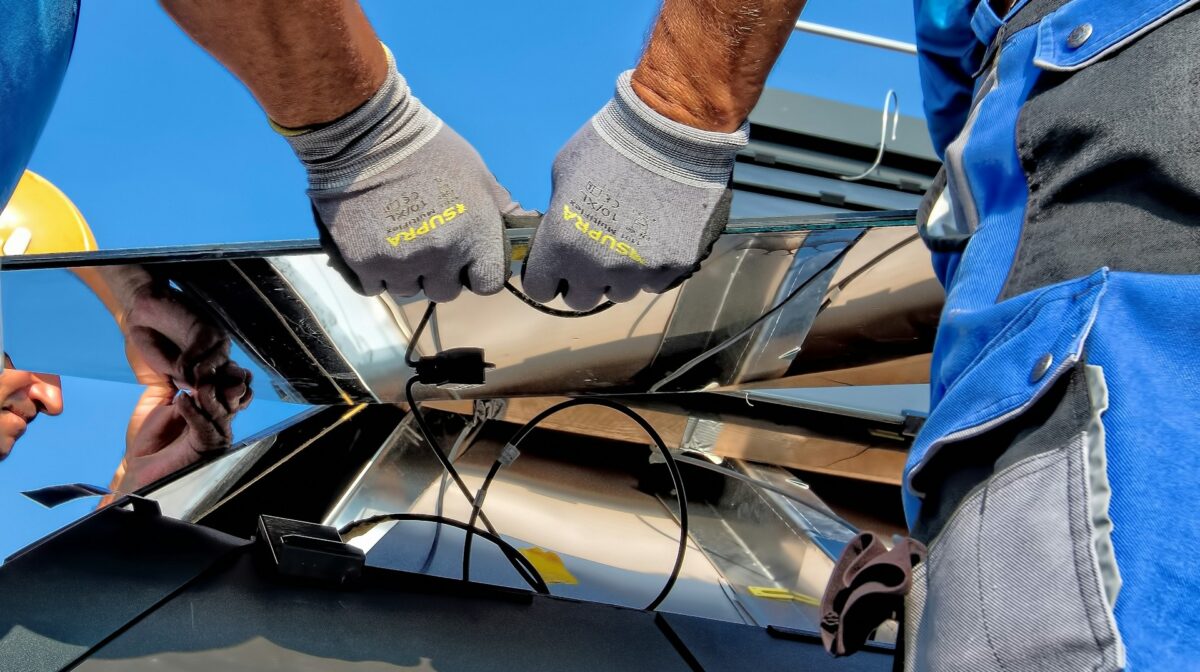The ESMC has published a recommendation paper on the implementation of the European Union’s Net Zero Industry Act (NZIA), which the European Parliament approved in April.
In the paper, “Implementation of the NZIA Proposition for Sustainability, Social, and Resilience Criteria,” the ESMC welcomed the inclusion of non-price criteria in auctions for solar modules outlined in the act.
The council said Europe’s solar energy dependency on one single country “makes us very vulnerable and jeopardizes both energy security and the whole green transition.” It added that the entire supply chain and manufacturing ecosystem for solar PV products “needs to be shored to Europe to the greatest extent possible.”
To strengthen the European sustainable solar supply chain, the EMSC’s paper proposes a carbon footprint mechanism to be used as an award or eligibility criteria, as well as an exclusion of countries with more than 50% of the market share from some public procurements and tenders and a ban on products from countries and regions with exposure to forced labor.
“With adequate criteria for resilience, sustainability and worker’s rights, auctions have the potential to serve as a crucial instrument in reshoring of solar manufacturing to Europe,” said ESMC’s Vincent Delporte, also head of public affairs at Holosolis. “We hope this paper can serve as a valuable resource for anyone interested in criteria for auctions of sustainably European made solar modules in accordance with the objectives of the NZIA.”
The ESMC said the NZIA should be adopted “as fast as possible”, ahead of the deadline of October 2025 given by the European Commission, to give the industry “a more predictable future and vision, and increasing the chances of opportunities for businesses.” The council also calls for regular dialogue between manufacturers, policy makers and member states – in line with the agreement in the European Solar Charter – to ensure that regulation and investment move forward together.
Elsewhere in the paper, the ESMC recommended that PV modules be given unique barcodes, displayed either in whole EU or separate EU countries databases, and backs the implementation of a PV Passport. The council also says it foresees that “more work needs to be done on the issue of cyber and data security.”
Noting that around 80% of all new inverters currently installed in the EU are now made in China, the paper said that “the Chinese state, in a polarized situation, could force Chinese inverter manufacturers to provide the data about European PV systems.” It added that as a worst-case scenario, a conflict with China could see Chinese inverter manufacturers orchestrate blackouts in Europe, requiring a total restart of the entire power grid that could take up to a week.
ESMC said the problem could be mitigated by procuring European-made inverters instead. In August 2023, the council’s survey of 15 European PV manufacturers found that solar module production dropped from 9 GW to 1 GW in a year.
This content is protected by copyright and may not be reused. If you want to cooperate with us and would like to reuse some of our content, please contact: editors@pv-magazine.com.




1 comment
By submitting this form you agree to pv magazine using your data for the purposes of publishing your comment.
Your personal data will only be disclosed or otherwise transmitted to third parties for the purposes of spam filtering or if this is necessary for technical maintenance of the website. Any other transfer to third parties will not take place unless this is justified on the basis of applicable data protection regulations or if pv magazine is legally obliged to do so.
You may revoke this consent at any time with effect for the future, in which case your personal data will be deleted immediately. Otherwise, your data will be deleted if pv magazine has processed your request or the purpose of data storage is fulfilled.
Further information on data privacy can be found in our Data Protection Policy.